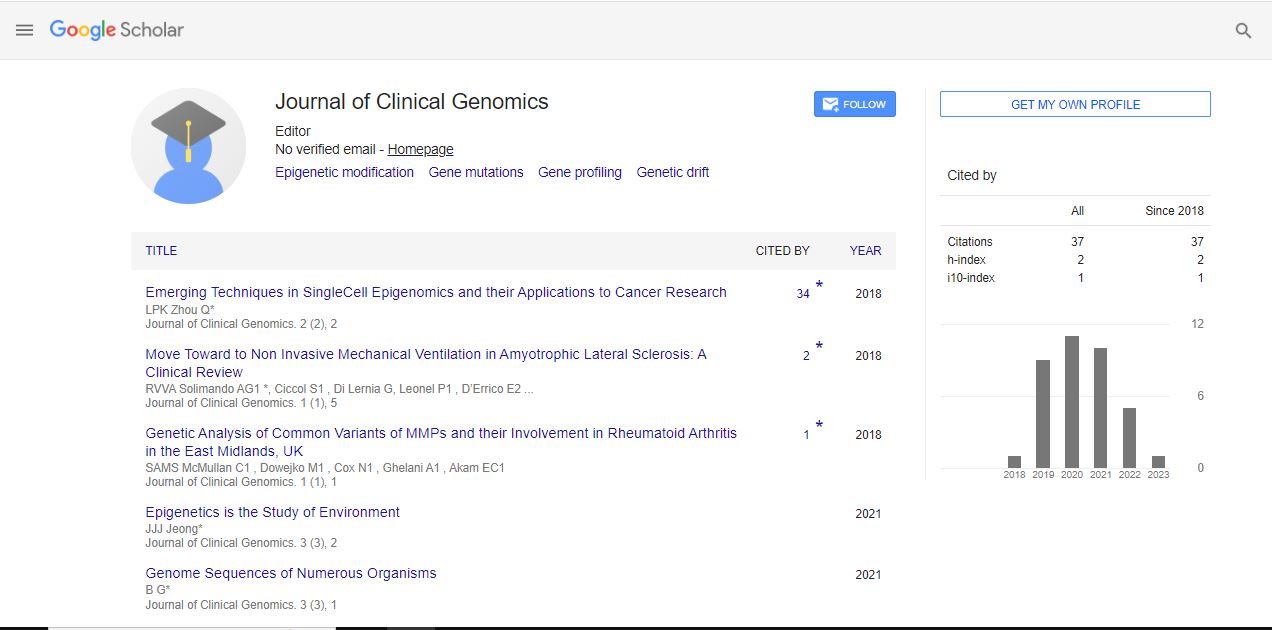Commentary, J Chromatography Res Vol: 4 Issue: 1
A Brief Description on Chromatography
Eman Santali*
Department of Pharmaceutical Chemistry, Taif University, Saudi Arabia
*Corresponding Author: Eman Santali Department of Pharmaceutical Chemistry, Taif University, Saudi Arabia,E-Mail: emansanthal23@ch.tf.ab
Received: 09 December, 2021; Accepted: 23 December, 2021; Published: 30 December, 2021
Keywords: analytical method , apparent velocities
Introduction
Chromatography is an analytical method used in chemical analysis to differentiate a combination into its constituents. The combination is disintegrated in a liquid solvent (gas or liquid) mobile phase, which transports it through a system (a column, a capillary tube, a plate, or a sheet) that is fixed with a material is known as the solid phase. Because the components of the mixture possess varying commonalities for the solid phase and are maintained for various periods of time guess it depends on their conversations with its sites on the surface, they travel at distinct apparent velocities in the mobile fluid, causing them to separate. The difference is caused through difference segmentation of the mobile and stationary phases. Subtle variations in a compound's the distribution coefficient causes differential retention on the stationary phase, which affects detachment. Chromatography can be either diffusion layer or analytical in nature. Sample preparation chromatography is a type of purification in that it separates the components of a mixture for subsequent use. It also should be stated that due to its system of production, this process is linked to higher expenses. The technique of chromatography advanced significantly as a result of hard project of Archer John Porter Martin and Richard Laurence Millington Synge in the 1940s and 1950s, for that they were awarded the 1952 Nobel Prize in Chemistry. They established the basic methods and practices of chromatographic separation, and their work aided in the rapid development of several chromatographic methods, including chromatography paper, gas chromatography, but what became recognized as elevated high performance liquid. Technology has advanced rapidly since then. Researchers discovered that basic principles of Tsvet's chromatography could be applied in a variety of ways, resulting in the various chromatographic methods mentioned below. Chromatography's technical performance is constantly improving, enabling for the separation of increasingly similar molecules. The substance to be kept separate all through chromatography is known as an analyte. It also is what is usually needed from the mixture. Analytical chromatography – and use of chromatography to determine the presence of analyte in the sample) in a sample, as well as the ability to focus of analyte(s). Bonded phase a stationary phase covalently bonded to the assistance particles or an inside wall of the column pipework. Chromatogram the chromatograph's visual throughput. Distinct reaches a maximum or patterns on the chromatogram correlate to various components of the divided combination inside the case of an optimal detachment. Chromatograph or aerograph – a device that allows for an advanced separation, such as gas chromatographic as well as liquid chromatographic separation. Chromatography is a common separation technique that allocates elements to detach among two phases, one stationary (stationary phase) and the other moving in a specified direction (mobile phase). Eluent (also spelled eluent) is a solvent or liquid fixation used in elution chromatography and is synonymous with mobile phase.Eluate – the solute (see Eluite) and solvent (see Eluent) mixture that exits the column. The flow that flows out of a chromatographic column is referred to as effluent. In practice, it is equated with eluate, but the term more precisely refers to the stream regardless of whether or not detachment occurs.
 Spanish
Spanish  Chinese
Chinese  Russian
Russian  German
German  French
French  Japanese
Japanese  Portuguese
Portuguese  Hindi
Hindi 